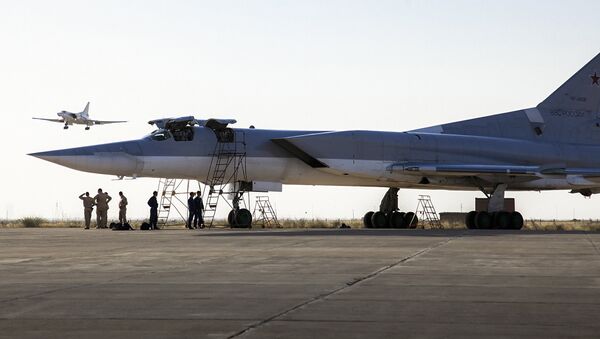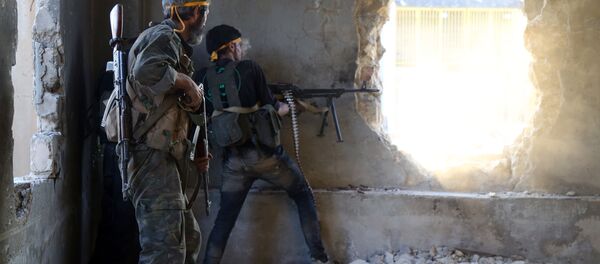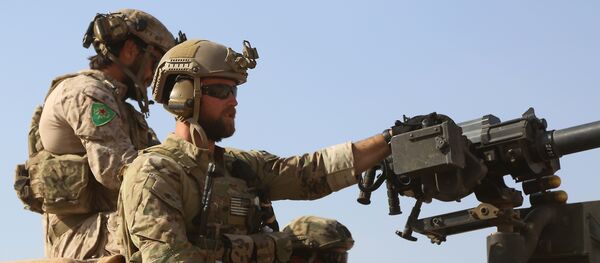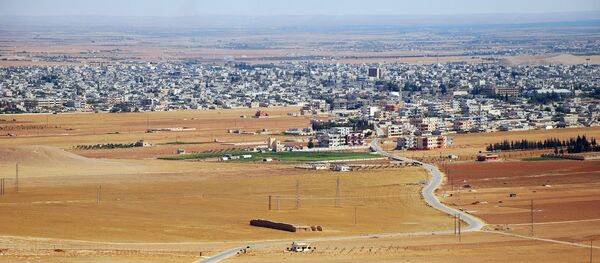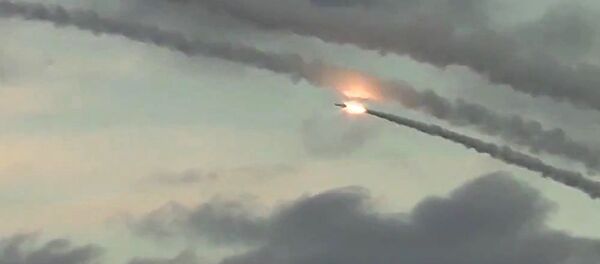“As if the multi-party war in Syria weren’t complicated enough, it now appears that the People’s Republic of China has decided to take a more active role in the conflict, providing increased humanitarian assistance and possibly military training to Syrian forces,” says the New York-based news website The Fiscal News.
“Combined, these two events create a major foreign policy conundrum for the Obama administration, as three of the countries, most resistant to the US on the global stage, appear to be teaming up against a non-state actor that has frustrated the US for years,” it further notes.
This point of view is echoed by The New York Times, which says that Russia now has “the ability to strike from virtually all directions in a region where it has been reasserting its power — from Iran, from warships in the Caspian Sea, from its base in the Syrian coastal province of Latakia and now from the Mediterranean.”
The newspaper however notes that the decision to fly the long-range bombers from Iran rather than from Moscow is even “far more important militarily”: if it continues, this “could result in a more devastating air war over a long period of time.”
The outlet explains that “while both Russia and the US say they share the goal of defeating the Islamic State group (Daesh) in Syria, they are waging parallel but separate wars against the militant group while simultaneously backing opposite sides in the conflict between Russia’s ally, President Bashar al-Assad of Syria, and his other opponents, including rebels backed by the US.”
"Regrettably, our partners in fact acknowledged that they cannot do this," Lavrov said.
"But we are not making a tragedy out of this. The directions of our work now allow switching to a coordinated and a more efficient cooperation in the fight against terrorists," Russia’s top diplomat added.
Earlier in August Russian Deputy Foreign Minister Sergei Ryabkov also said that the US was unprepared to separate terrorist organizations from the moderate opposition in Syria.
“The Syrian government has embarked on the separation of terrorists from the moderate opposition and the civilians.. Our colleagues in Washington were not ready to do for political reasons, and did not intend to do throughout the past months in defiance of the signals and the promises they gave us,” Ryabkov added.
“We have repeatedly drawn the Americans’ attention to the fact that after each successful round of closed negotiations and after reaching certain agreements, Washington begins putting forward additional requirements that violate the entire balance and prevent progress immediately afterward,” Ryabkov then said.
He added that “there are regular Russia-US contacts along various lines. Both foreign and defense ministries are involved in these contacts.
“We attribute as unflattering the assessments we hear from our American colleagues,” he said.
“Washington has been completely inconsistent in its actions in Syria, putting forward demands to stop fighting terrorists as soon as the Syrian army has achieved real success in fight against terrorists”, Ryabkov said.
As soon as the Syrian government and the armed forces have achieved, with Russian support, a real progress in the fight against terrorists, the Americans began to use unacceptable methods, demanding, in essence, the cessation of the fight against terrorists.
A central issue in the US-Russian cease-fire negotiations in February was the fact that the opposition groups supported by the CIA operate in close proximity to and full cooperation with units of al-Nusra Front.
Last year the former US ambassador to Syria, Robert Ford (2010-2014), admitted that the Obama administration had long “looked the other way while the [al-]Nusra Front and armed groups on the ground, some of which are getting help from the US, have coordinated in military operations against the regime.”
Now, backed with US weaponry, these same groups are a significant barrier to upcoming peace talks in Geneva.

